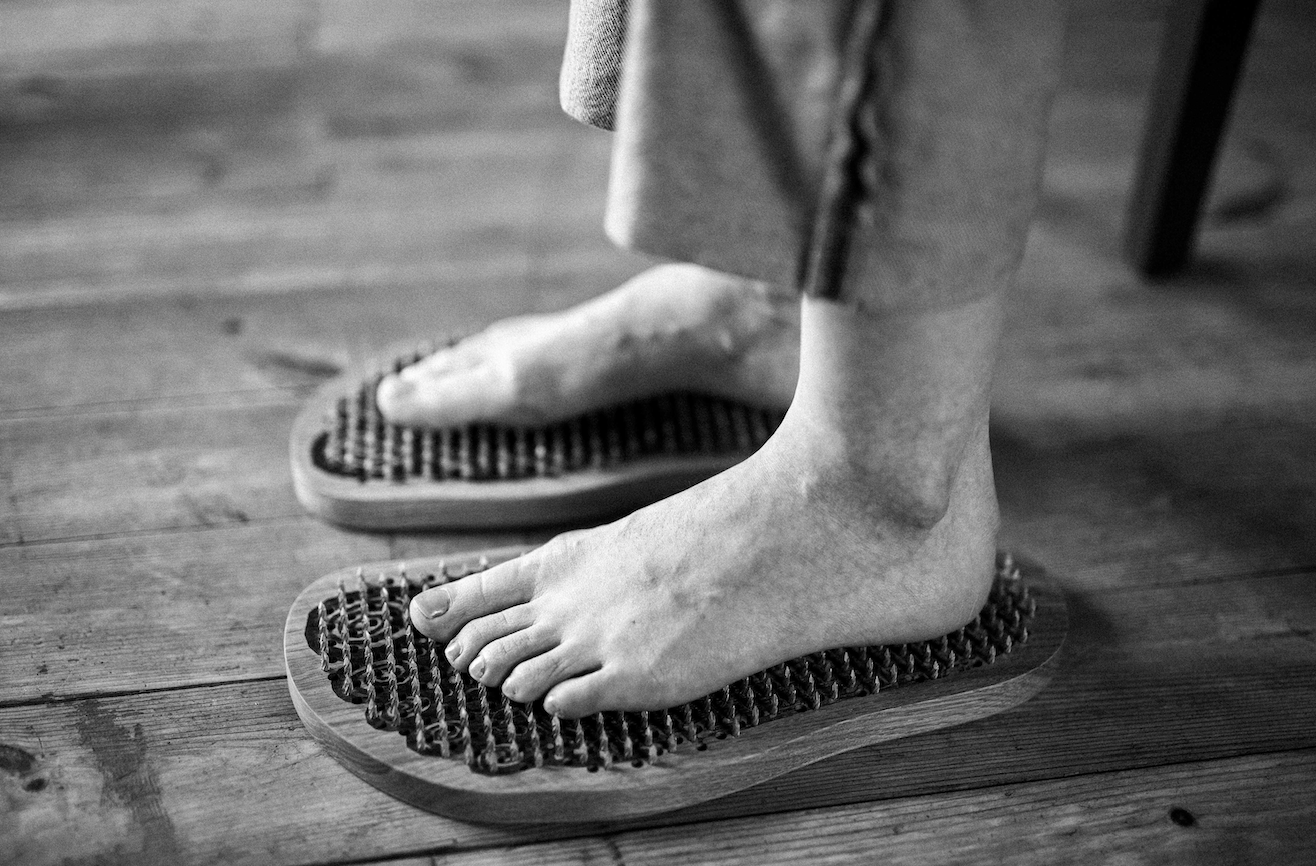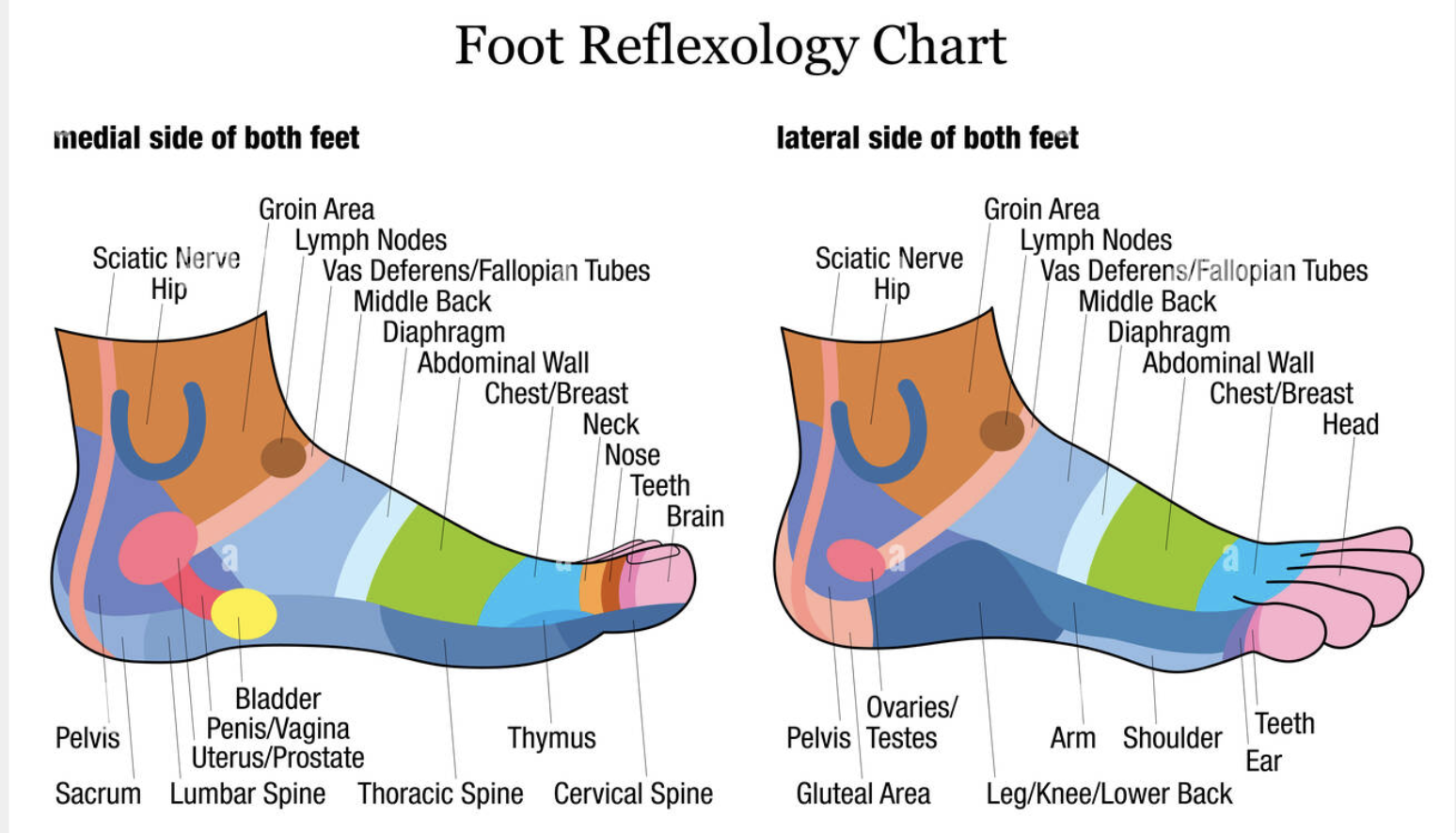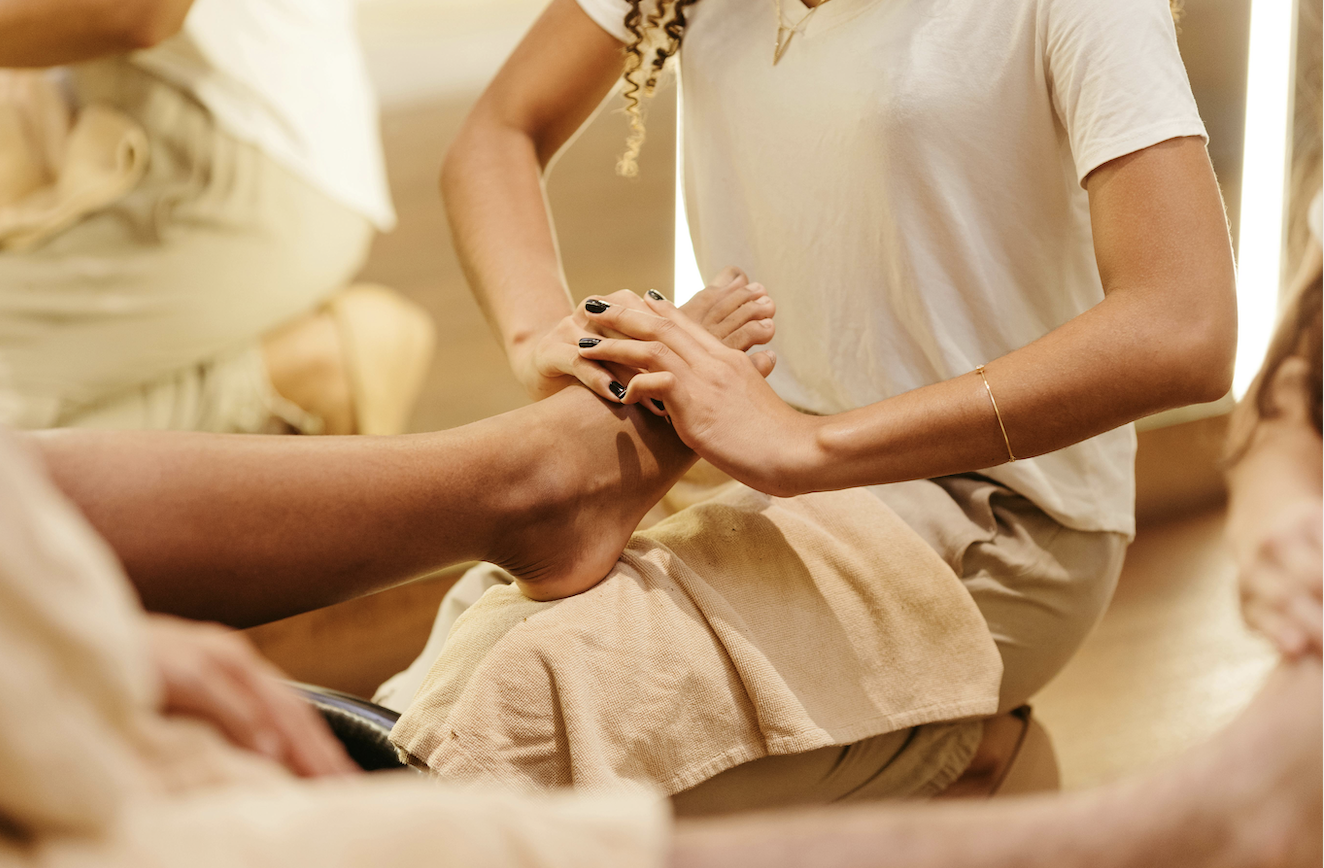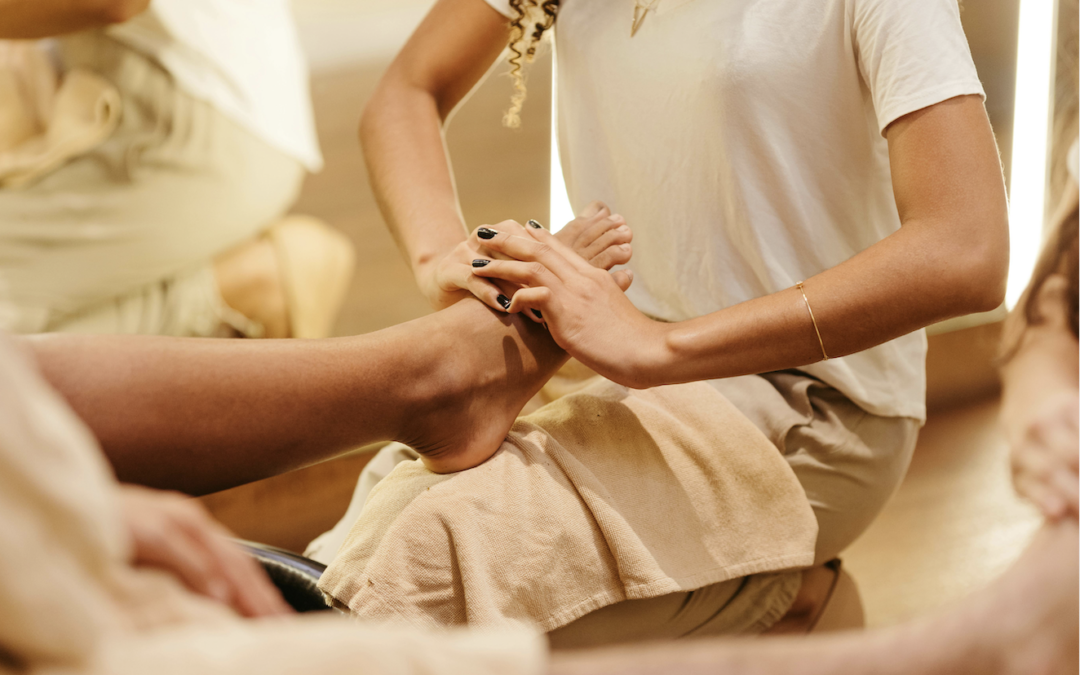
Throughout history, reflexology has been revered for its therapeutic benefits beyond mere relaxation. Practitioners of this art believe that reflexology can help relieve pain, sleep troubles, backaches and other health concerns, restore the body’s qi, and provide healing.
As more and more people seek holistic approaches to health and wellness, reflexology remains a timeless and trusted practice for rejuvenation and self-care.
Here’s everything you need to know about reflexology.

Where did reflexology come from?
Ancient Reflexology
Reflexology is an ancient form of therapy that’s been practiced for thousands of years, dating back to ancient Egypt, China, India, and Native America.
The first documented evidence of reflexology, however, is a pictograph or wall painting found in the tomb of Ankahamor (around 2,330 BC in Saqqara, Egypt). It depicts people receiving treatment on their feet, although it is unclear whether the image merely represents massage as opposed to reflexology.
Some individuals have claimed reflexology came from ancient China 5,000 years ago, but were unable to provide evidence. Nevertheless, one thing is clear: physical exercise and massage (anmo) have been practiced since the Shang dynasty (1600-1000 BC). These practices have been seamlessly integrated into Traditional Chinese Medicine (TCM), becoming essential components of holistic health and wellness approaches.
Modern Reflexology
Several centuries later, reflexology evolved into the Modern Age, thanks to two pioneering individuals, Dr. William Fitzgerald and Eunice Ingham.
In the 1900’s, Dr. Fitzgerald published his work on zone therapy, which named ten vertical zones that contained reflex sites.
An American physiotherapist, Eunice Ingham, took zone therapy a step further when she made intricate maps of the glands and organs located on the reflex points of the feet and hand in the 1930s. Her work made reflexology accessible to more people. She is widely considered the “Mother of Reflexology.”
What is reflexology?
The study (and practice) of reflexology is based on the belief that specific areas of the feet (and possibily on your hands and feet as well) correspond to different areas and organs of the body.
For instance, applying pressure to the tops of your toes is thought to offer relief for sinusitis, while targeting the heel is said to alleviate lower back discomfort and sciatic nerve pain.
People trained in the technique called reflexologists use a foot chart or reflexology map (see image below) to apply pressure to help with alleviating health issues of the body.

Some people call it a massage, yet reflexologists prefer to call it a therapy– a complementary therapy to help address health concerns, to be used alongside traditional medicine.
If you practice TCM, reflexology is a great way to restore balance in one’s qi or vital energy.
A visit to a reflexologist typically takes 30 to 60 minutes.
If you’re considering trying reflexology for your health and wellness, here are the health benefits you can expect to experience, according to Everyday Health.
May Help Relieve Pain
In one uncontrolled study, 311 individuals with nerve pain found that one session of reflexology led to a 40% decrease in overall pain – this is of course, conducted in addition to their usual pain care.
People also seek reflexology to combat low pack pain, migraine head ache, and even pain related to premenstrual syndrome.
It should be noted, however, that more research should be done to prove the scientific effectiveness of reflexology in relieving pain.
Can Help with Mental Health
People often use reflexology as a complementary therapy to treat mental health issues such as anxiety and depression.
Reflexologists and patrons believe that as it stimulates particular pressure points or nerve endings, it helps to eliminate the buildup of toxins in the body.
May Improve Sleep
Have sleep troubles? Reflexology might help.
In this study using the Pittsburgh Sleep Index, they found that foot reflexology significantly reduced sleep disturbances.
Further, in this study of 100 menopausal women, the researcher found that merely 15 minutes of reflexology helped with symptoms of menopause such as hot flashes, as well as improving sleep quality.

May Ease Symptoms of Cancer and Cancer Treatments
A study featured in the Asian Pacific Journal of Cancer Prevention in 2019 examined 57 nonmetastatic breast cancer patients undergoing chemotherapy. These participants were split into two groups: one group received reflexology sessions twice weekly for four weeks alongside standard care, while the other group solely received standard care. By the study’s conclusion, those who underwent reflexology reported significantly lower levels of fatigue compared to those who didn’t receive the treatment.
Another review of research, published in the International Journal of Cancer Management in July 2020, highlighted a generally positive impact of reflexology on cancer pain in patients when compared to standard care. However, the review noted a considerable variability in the quality of the studies included.
May Ease Digestive Issues
Some studies have found that reflexology may help relieve digestion problems as well as improve gut health by stimulating reflex points on the feet corresponding to digestive organs.
There are only a handful of studies. so be sure to consult your doctor before trying reflexology for your digestive issues.
For instance, a limited-scale study involving 19 female patients suffering from chronic constipation revealed that 94 percent of the participants reported some degree of improvement in their constipation symptoms following a six-week regimen of foot reflexology treatments.
Additionally, a comprehensive review and meta-analysis of seven studies, as published in Complementary Therapies in Clinical Practice in August 2020, concluded that foot reflexology could serve as a viable complementary therapy for addressing constipation.
For the full article on Everyday Health, read this article.
–
If you’re looking for additional health and wellness therapies to reduce stress and help you improve on some health issues, then go ahead and try reflexology.
Although reflexology lacks scientific validation as a medical remedy for health conditions, its historical usage spans centuries in addressing various ailments. And if you’re open to this, then there’s no harm trying.
Remember, however, to consult with a healthcare professional. Individuals with circulatory problems, gout, or blood clotting issues are advised to abstain from it.
Tags
References:
https://www.everydayhealth.com/integrative-health/potential-health-benefits-of-reflexology/
https://www.thrivewellnesscentre.com.au/the-history-of-reflexology/
https://www.completereflexology.com/the-history-of-reflexology/
https://www.everydayhealth.com/integrative-health/potential-health-benefits-of-reflexology/
https://health.clevelandclinic.org/reflexology
Photo Credit: Foot Map (Alamy)



0 Comments